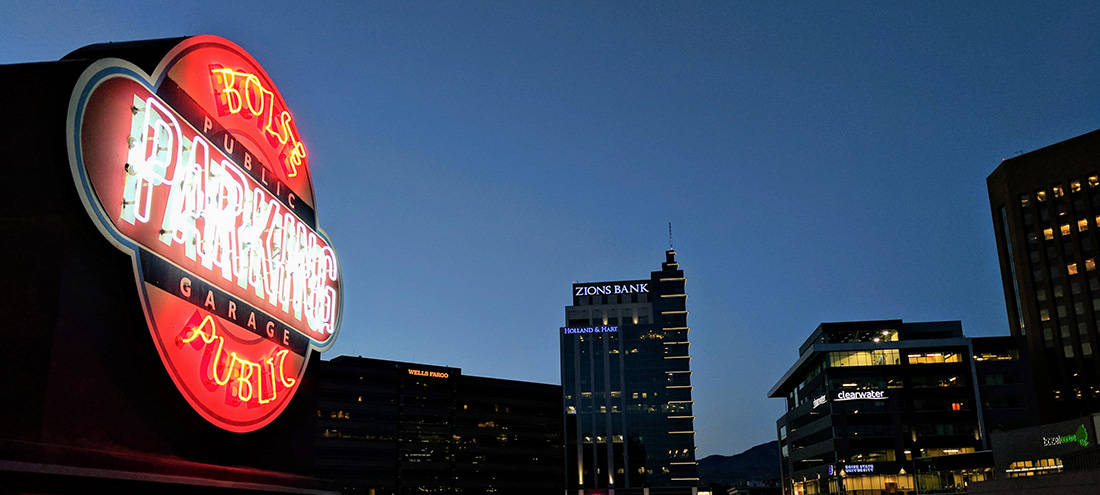


The City of Boise has moved ahead with numerous rezoning initiatives, incentive programs, and city ordinances this year in its attempt to make housing more affordable. As housing has become more unaffordable, the city counsel, mayor, and various city departments, have used continuously rising costs as an excuse to embrace a command-and-control economic model. In rejecting free market principles, predictably, housing continues to become even more unaffordable, the city’s good intentions aside.
Take, for example, what the City of Boise proposed doing just this last week:
At last Tuesday’s city council meeting, the Boise City Council gave its approval to purchase two parcels of land at the northeast corner of Overland Road and Philippi Street for nearly $2.5 million. This property is to be part of the city’s newly envisioned housing land trust. The purpose of Boise’s new land trust is to “acquire land and create permanent housing.” In other words, it is the policy of the city of Boise to purchase private property with tax dollars and then to contract with private developers to build affordable housing.
After all, if the city can’t mandate rent control on private property, and it can’t, why not just use taxpayer money to buy private property to offer below-market rent? Using the housing land trust, the city can then effectively create whatever rent-control scheme it wants without passing an ordinance, since the city itself would be the owner of the property.
Land purchases such as this, of course, add to the city’s indebtedness, thereby likely increasing taxes on residents — something that does not help make living in Boise more affordable — as the government's geographic footprint and control over formerly private property continues to expand.
The proper role of a city government shouldn’t be to continually acquire land, even if only done incrementally, to build the type and amount of housing the city deems most prudent, and then turning around and taxing residents for this apparent service, which is no service at all. Rather, the city’s default should be to leave private property privately owned.
Not to be outdone by Boise’s new housing land trust, Boise’s urban renewal agency, Capital City Development Corporation (CCDC), announced last Monday it plans to build a “mixed use mobility hub” on land it acquired immediately across from the YMCA on State Street. The initial proposal for the mobility hub includes 100 affordable housing units, electronic car charging stations, bicycle storage, storage for e-scooters, carpool drop-off and pick-up areas, and ground floor commercial retail space.
Idaho’s urban renewal law, used to justify CCDC’s involvement here, was passed in 1965 to fix “deteriorated and deteriorating areas...which constitute a growing and serious menace, injurious to the public health, safety, morals and welfare of the residents of the state.”
I hardly think the block across from the YMCA on State Street, which was purchased by the city, fits the above description. Nevertheless, Idaho’s urban renewal law has been, and continues to be, quite liberally used for purposes unrelated to the original purpose for which it was written.
Not only is CCDC’s project not in a deteriorating area, but Assistant Director of Placemaking and Infrastructure for the urban renewal agency, Doug Woodruff, stated during his presentation last Monday, “The Westside District is very active and there’s a lot of economic development and public infrastructure happening.”
Regardless of this, Woodruff stated, the project’s broad purpose was to “catalyze private investment.” This begs the question: If this is an area where a lot of economic development is already happening, and in a very desirable part of town, isn’t it superfluous for the city to make investments to “catalyze private investment?”
Woodruff estimates the project will cost somewhere in the ballpark of $3 to $10 million — if one can call such a range an estimate. Mind you, that amount is on top of the funds the agency has already expended to acquire the property.
I wish I could say the city’s appetite for such unnecessary public expenditures was tempered. This doesn’t appear to be the case.
Woodruff also explained, one important question the urban renewal agency should be asking itself is, “How can we leverage our properties to extend further beyond just our bounds and look to partnerships and larger ideas that bring more land into the deal and result in bigger and more beneficial projects for this neighborhood.”
Despite the possible good intentions, what land purchases for housing land trust and urban renewal projects do is to ultimately increase resident’s property taxes — something which certainly does not help make housing more affordable. Additionally, such projects also cause private property rights to deteriorate over time, as cities become increasingly comfortable using affordable housing as an excuse to purchase more and more private parcels of land.
If Boise city officials want to make housing more affordable, they would be well advised to stop continually emptying its coffers on the pet projects of various boards, city council members, and the mayor. If they want to make housing more affordable, they should do the opposite of what they have been doing: Step aside and let private citizens and private developers make their own housing decisions.


